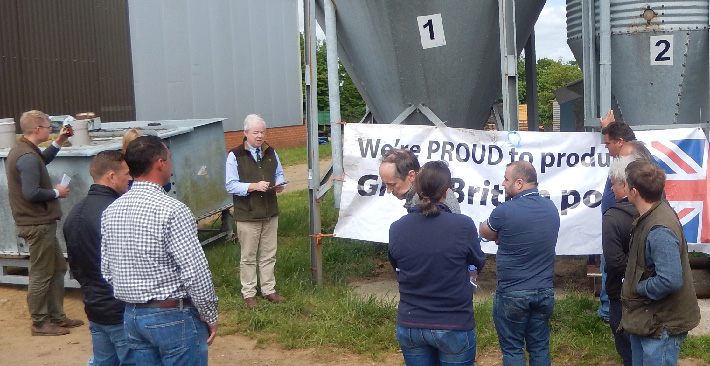With the exception of the disruption brought to the whole pig supply chain by the lack of CO2 available in the abattoir and meat processing sector, pig prices have in general remained at very similar “stand on” levels although the SPP moved up a useful 0.72p to stand at 150.07p which is the first it has been at this level since December 30, 2017.
The spot bacon market has remained relatively quiet with reports of prices in the 150-152p region, but most weekly contribution prices have also held at similar levels within the 141-148p range. The influential German producer price has also held at €1.44, which in our money is equivalent to 126p/kg.
Cull sow quotes are still lacklustre with two main UK export abattoirs standing on in the 63-67p range although an extra copper or two has been available for large loads.
The value of the Euro has improved marginally trading on Friday worth 87.58p compared with 87.33p a week ago. Weaner values are holding with the latest ADHB 30kg ex farm average quoted at £54.06 and the 7kg average at £38.12.
Space for Red Tractor weaners is still scarce although one or two buyers have started to show an interest at lower price levels.
UK protein prices are reflecting slightly easier trends, trading in mid-June worth £337/t for 48% soya meal ex Liverpool down by £10/t on the previous week and 34% soya meal is also easing slightly in value with mid-June quotes of £206/t which is £3/t down on the start of the month.
Although the EU have introduced tariffs on US maize, traders do not believe that this will have much effect on the EU market as US maize only accounts for 5% of their total maize imports.
Grain prices have seen London wheat trade at £159/t for November and UK spot feed wheat averages have also been at similar levels at around the £159/t mark.
And finally, the CO2 famine appears to have hit the headlines with serious implications as far as the whole of the meat processing industry is concerned, with a large number of UK pigs slaughtered using gas rather than electric stunning.
There are also implications as far as gas usage and further processing is concerned with the recent crisis has arisen due to maintenance shut downs which has left the UK with only one big CO2 producer in action.
At least five CO2 producers in northern Europe are currently undergoing maintenance and are out of service and further maintenance in the UK has left us with only one big CO2 producer in action. Challenging times ahead for the industry, not to mention rising feed costs and the shortage of straw.
CO2 is made at ammonia plants which also manufacture fertiliser and they have been shut down for summer maintenance just at the time when CO2 consumption reaches a peak – hopefully normal service will soon be resumed.




